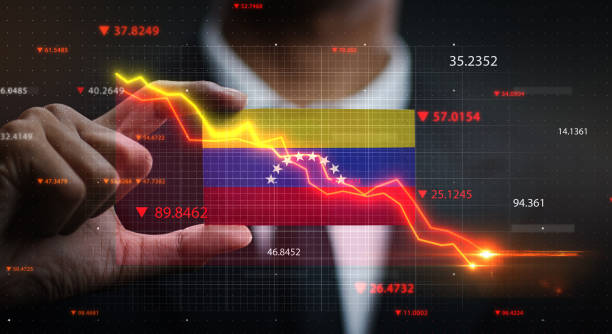Venezuelans saw prices increase by 8.5% last June, according to a calculation by the Venezuelan Finance Observatory.
Accumulated inflation in the country, up to the middle of the year, was, according to the same body, 100.75%. And there is a certain consensus among economic analysts that it could reach 200% by the end of the year. The triple-digit average, while frightening, is far below what the country suffered in its recent history, for example in 2018, at the height of hyperinflation and the mass exodus of citizens.
After the historic collapse of the economy between 2014 and 2020, which took 80% of its GDP with it as a result of a drastic drop in oil production, Venezuela is desperately looking for space to expand. And that expectation, for the moment, seems condemned to have a ceiling: its own political crisis.
The Venezuelan economy is growing, supported by an improvement in its oil GDP, but at a clearly insufficient rate.
At the end of last year, there was an exchange rate depreciation that almost froze productive activity again, aggravated by new acts of corruption in the government. The country needs to have several years with double-digit growth rates to be able to recover its old physiognomy.
The monthly minimum wage is equivalent to just 5 dollars. Private sector salary scales are much more reasonable, often supplemented by dollar bonuses, but they fall short.
Venezuelan President Nicolás Maduro has decreed increases in complementary bonds that the government delivers. There are many people who have two or three jobs, each of which is very poorly paid. It begins to be common to find people who live on money sent by their relatives abroad.


















